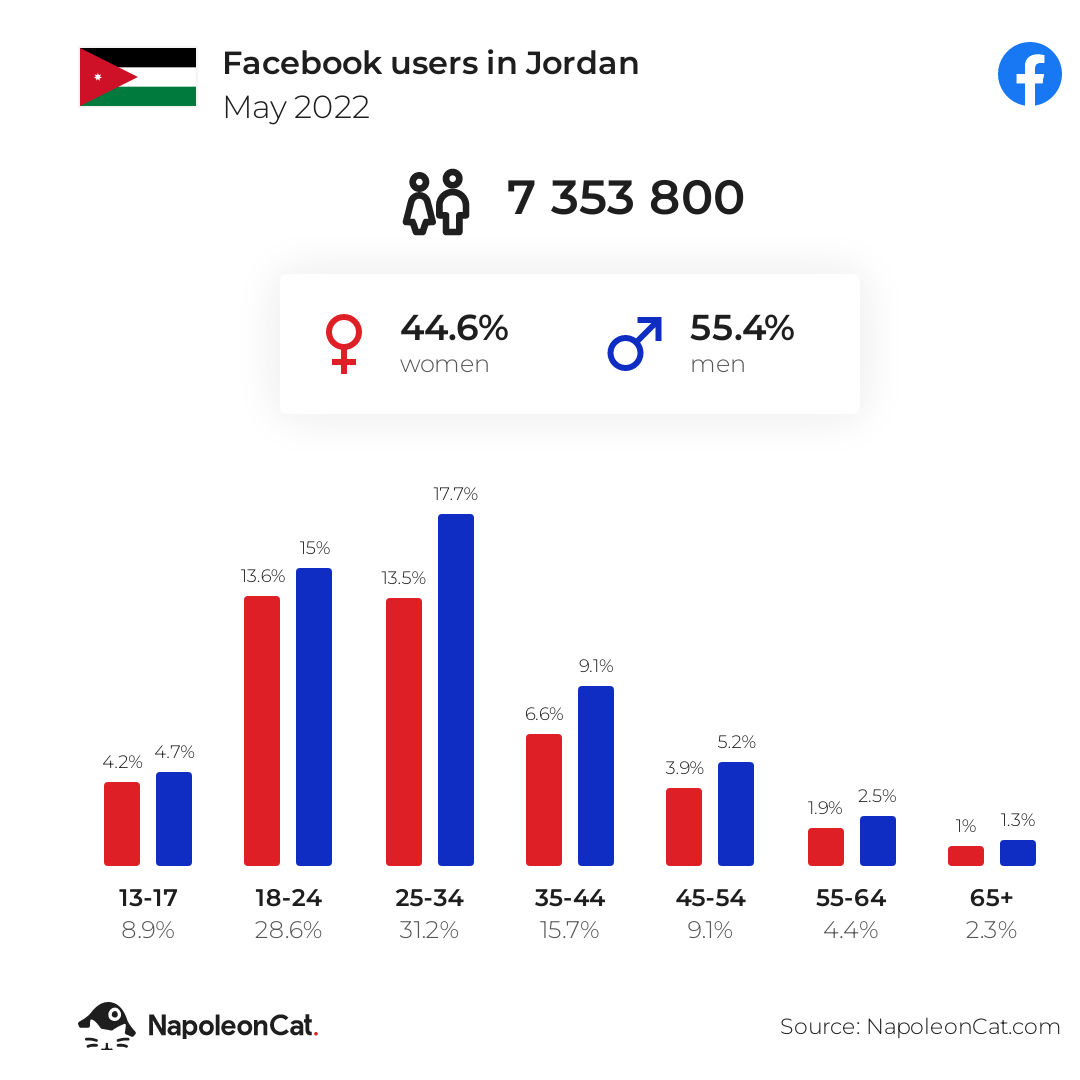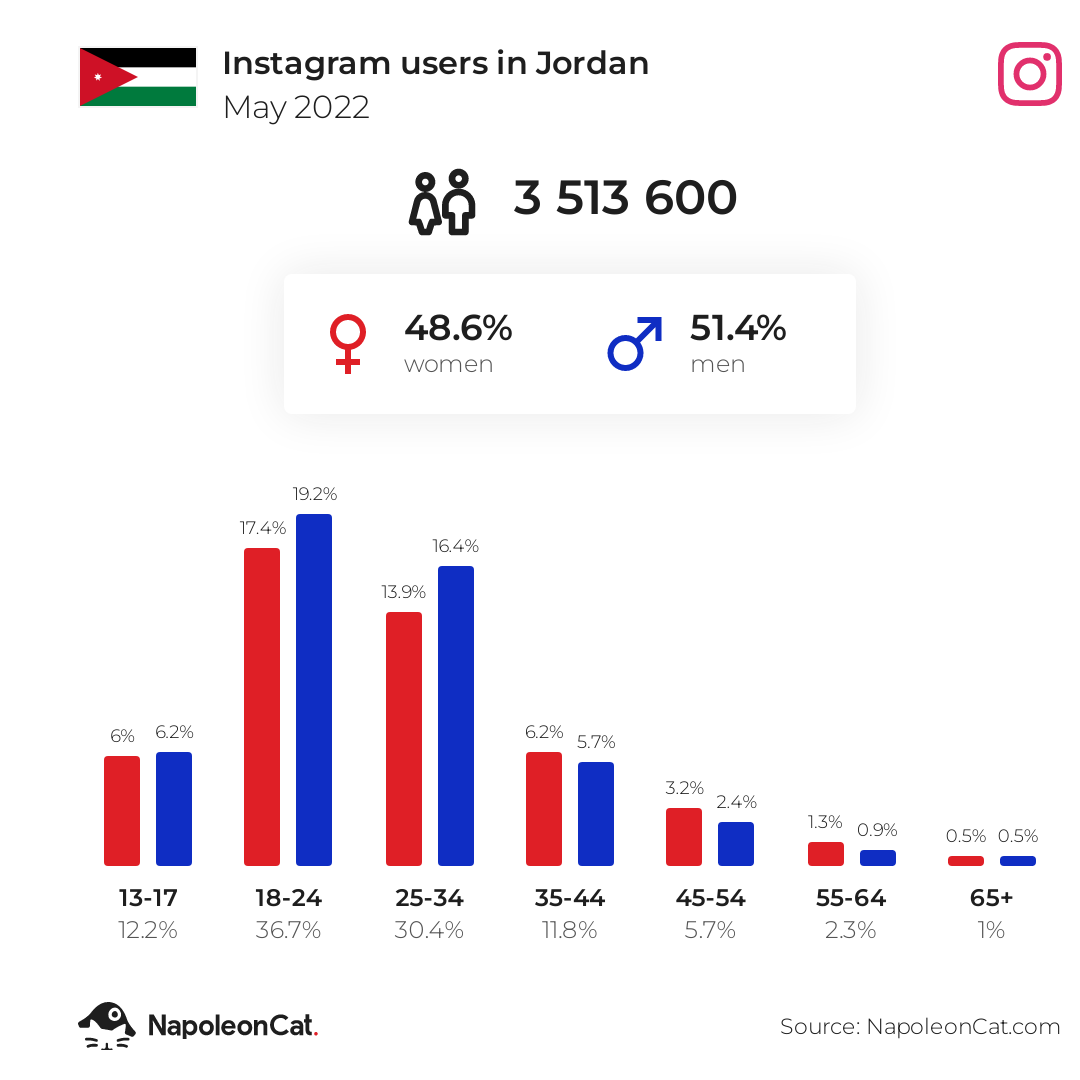Is Jordan’s new cybercrime gateway to more regulation, taxation?
ALBAWABA – There are articles in Jordan’s new cybercrime law, which was ratified by parliament on Tuesday, that indicate a potentially larger regulatory agenda by the government, going beyond concerns of muffling public criticism and invading privacy.
The bill, or draft, pending the approval of King Abdullah II, also lays the legal foundation for regulating social media networking and platforms, and their activities in Jordan.
In Article (37) of the Jordan’s new cybercrime law, the legislation stipulates that social media companies are required to establish offices in Jordan, as reported by AlMamlaka TV.
Failing to comply with the articles of the law and the specified periods will subject these companies to various measures. Such measures include but are not limited to banning ads on the companies’ platforms, imposing fines and restricting access and bandwidth, all the way to banning platforms altogether.
Is Jordan’s new cybercrime law a preface for social media taxation?
Legally forcing social media companies to establish offices in Jordan serves a multifaceted purpose.

First, it would help – in principle – expand the Jordanian authorities’ domain to include content that is circulating social media platforms and networks, both domestically and maybe even abroad.
It would set a dangerous precedent. But if the government were to realize any such objectives, it will be able to – at least in part – control the narrative when it comes to Jordan-related topics. It would also allow the authorities to create local legal requirements that would force companies to run their platforms on a country-by-country basis. Notably, this would probably encompass privacy and content policies as well.
As to whether Jordan will be able to reinforce this legislation with further sector-specific laws and regulations, and whether the companies will stomach it and comply, that is an entirely different story.
Second, from a business perspective, this would also expand the government’s taxation domain to include these companies’ operations in Jordan, via their offices.
Back in 2017 and 2018, a legal and technological battle broke out between the government of Jordan and taxis on one side and ride-hailing apps Uber and Careem and their captains on the other.
For the better part of a year, these apps were blocked and banned, and the authorities carried out thorough campaigns to fine their drivers. In fact, it was one of the earliest instances when VPNs were banned in Jordan. Because VPNs helped users circumvent network and carrier-enforced blocks on ride-hailing apps.
The government demanded the companies establish offices in Jordan as well, and demanded that they pay taxes on the services they provided people in Jordan.
Of course, Uber and Careem fought for as long as they can. But they eventually caved. Today, Uber and Careem are among the few officially registered apps with offices in Jordan, paying taxes and all.

Generally speaking, the idea that a service used widely by Jordanians would go untaxed, unregulated and unlicensed by a government entity does not sit well with the government. Not to mention that taxi drivers pressured the government for months to ban the apps altogether, because they were supposedly harming their business.
Overall, the government’s announced motives back then were to create a fairer market for the domestic sector, taxis and public transportation; and protect it from the big globally competitive market. That being the entry of Careem and Uber.
However, when it comes to social media, today, who is the government protecting?
Unspoken motives behind Jordan’s new cybercrime law
Jordan’s government has been scrambling to create new sources of income and taxation for years to help finance recurring and growing budget deficits.
Since 2016, various efforts and programs were enacted with the International Monetary Fund (IMF), to expand the taxable base in the country. New laws were introduced as reforms to the tax system and partial de-subsidization. These reforms led to the 2018 protests, which partially prompted the resignation of the government back then.
However, this is likely where the government got the idea from; to tax new segments in the economy and society and create new streams of revenue.
Eventually, the government won the battle against Uber and Careem. But will they prevail over Meta and Twitter?
Will Meta, Twitter comply with Jordan’s new cybercrime law?
In all likelihood, they will not. Market share is an essential aspect to consider in this case, as to whether social media companies will cave the way Uber and Careem did in Jordan.
Globally, Careem and Uber have captured a market of 50 million and 93 million users, respectively. Totalling 143 million, according to official company data.
Meanwhile, Statista estimates there are 1.9 million ride-hailing users in Jordan. All in all, Jordan’s share comprises 1.3 percent of Uber and Careem combined global market.
Notably, 1.3 percent of any global market is a significant percentage.
This ratio reflects high penetration rates, even with government restrictions and complications. And Statista estimates the number of users will grow to 2.05 million users in less than 3 years.
The same, however, does not apply for social media platforms. They are near their highest penetration levels, with no notable resistance, until now. Meaning that Jordan’s market for social media platforms is at its peak.
So, how important is Jordan’s market for the main social media companies, Meta and Twitter?

As of January 2023, Jordan has 6.61 million social media users, according to DataReportal.com. More specifically, data by Napoleon Cat estimates there are 3.5 million and 7.3 million Instagram and Facebook users in Jordan, respectively.

Meanwhile, Twitter (now X) has less than one million users in Jordan, Jordan News reported.
Source: StatCounter Global Stats – Social Media Market Share
As of April 2023, Facebook had nearly 3 billion active users worldwide, as per Data Reportal, and Instagram had 2.35 billion active users, according to Demand Sage.

The bottom line is that Jordan comprises approximately 0.14 percent of Instagram’s global market and 0.24 percent of Facebook’s.
As for Twitter, Jordan’s market of active users comprises 0.2 percent of Twitter’s global market.
In other words, Jordan’s share of the social media behemoths’ global market is – from a business perspective – too insignificant for Meta and X (Twitter) to compromise on their policies.
As previously explained, there is the additional risk that complying with Jordan’s new cybercrime law would set a precedent for other countries to force their hands into submission too.
Many other governments would love to see social media in compliance with their legal environments.
What if Meta, Twitter do not comply with Jordan’s new cybercrime law requirements?
Should the law pass with King’s approval and come into effect, what will likely happen is that the main social media platforms will be banned within a few years.
To Meta and X, Jordan’s timelines will be missed, but it will not make a dent.
Soon after, new apps will surface, the way they did in Iran and even North Korea, which may be more difficult to regulate as social media networking in Jordan slips into the dark web.
So far, various protests and stand-ins were held over the past few weeks. Memorandums and petitions were submitted to Parliament and the Jordan Press Association, all before the House of Representatives ratified the amended 2023 Jordan cybercrime law, but to no avail.





